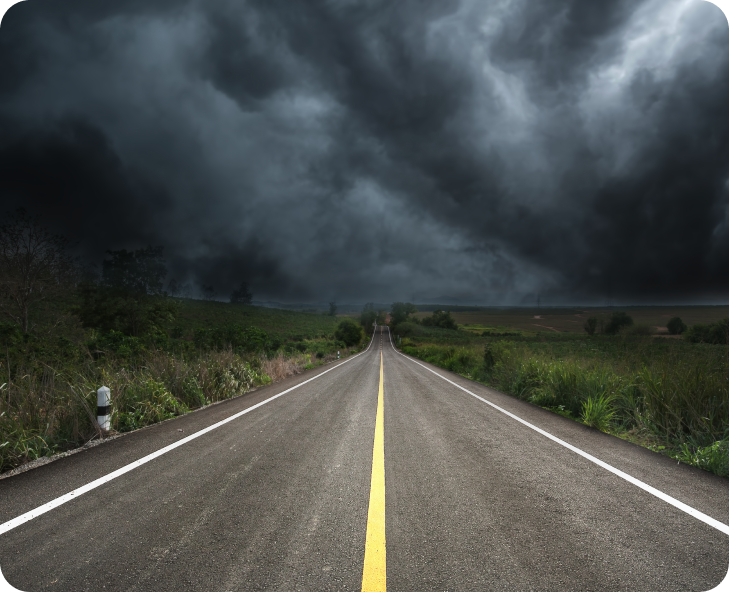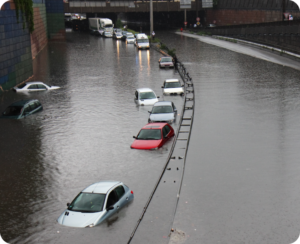With hurricane season approaching fast, there’s no time to waste preparing your home and family. We’ve all seen the destruction these storms can cause, but you can significantly reduce the risks by taking proactive steps now.
The National Oceanic and Atmospheric Administration (NOAA) meteorologists forecast an above-normal hurricane activity in the Atlantic basin for 2024. NOAA’s outlook for the 2024 Atlantic hurricane season, which runs from June 1 to November 30, indicates an 85% chance of an above-normal season, a 10% chance of a near-normal season, and a 5% chance of a below-normal season.
NOAA predicts between 17 and 25 named storms in total (winds of 39 mph or higher). Of these, 8 to 13 are expected to become hurricanes (winds of 74 mph or higher), including 4 to 7 major hurricanes (category 3, 4, or 5, with winds of 111 mph or more).
We’ve already seen that they were right and everything these storms and hurricanes are capable of. So, if you haven’t started preparing yet, you might already be behind!
We’re not just talking about stocking up on canned beans, water, and toilet paper. We’re talking about a full-blown action plan—a survival guide—to ensure you’re ready to protect yourself and your family when facing severe storms, hurricanes, or tornadoes that could hit our country.
Check out our Hurricane Survival Guide to keep you, your family, and your home safe this season:
1. Stay informed
First and foremost, stay informed. Follow weather forecasts and alerts from trusted sources like the National Hurricane Center, a division of NOAA. Knowing when a hurricane or tornado is approaching is the first step to being prepared.
We’ve got an article dedicated to weather warnings and alerts—click here to learn how to interpret the ones you may receive.
2. Create a family emergency plan
If evacuation becomes necessary, you need to know where you’ll go and how you’ll get there. Your emergency plan should cover any issues that could arise if evacuation is required and how and where your family will meet up if you’re not together.
Share this plan with everyone in your household, and choose someone outside the area as a common communication point for all family members.
Your plan should be personalized, considering your location, family members’ usual whereabouts, and the types of disasters that may affect your region, such as hurricanes, floods, or fires.
3. Strengthen your home
Your home is your sanctuary, so let’s make sure it stands a chance against the storm. You can’t predict wind speeds, but you can research past hurricanes in your area and work on minimizing potential damage. The following actions can help protect your property:
- Reinforce windows and doors: Install storm shutters or use plywood to cover windows. Ensure that doors are sturdy and have at least three hinges and a security lock.
- Trim trees and shrubs: Large branches are more likely to break and turn into dangerous projectiles. Pruning can strengthen your trees in periods of sun and heavy rain. Make sure not to leave loose branches or firewood stacks where winds can scatter them.
- Inspect your roof: Ensure the roof is in good condition. Fix any loose shingles, and consider installing hurricane straps to keep it intact.
4. Stock up on essentials
Prepare an emergency kit with the following essentials:
- Water (one gallon per person per day for at least three days)
- Non-perishable food
- Flashlights and extra batteries
- First aid kit
- Medications and personal hygiene items
- Essential documents like insurance policies, birth certificates, and passports stored in a waterproof container
- Backup digital copies of important documents
- Cash (ATMs may not work during power outages)
You can also include waterproof clothing, rain boots, and other essentials to manage a few days without basic services. Keep everything in a single, easy-to-access location, ready to grab and go.
5. Prepare for power outages
Hurricanes often lead to power outages. Be ready with:
- Backup power: Consider a generator to keep essential items running.
- Battery or crank radio: Stay updated with the latest news and weather updates.
- Fully charged devices: Ensure your phones and power banks are charged before the storm hits.
6. Review your insurance policies
Ensure your home, auto, and business insurance policies are up to date has coverage for hurricane and tornado damage. If you’re unsure, call Breezy, and we’ll help you review your policy and ensure you’re fully covered. Coverage options to consider include:
- Home Insurance: Basic coverage for your home’s structure and belongings. Ensure it covers storms and hail.
- Flood Insurance: Standard home insurance doesn’t cover flooding. Given the heavy rains hurricanes bring, this is essential.
- Comprehensive Auto Insurance: Protects your vehicle from hurricane damage, flooding, and debris.
- Additional Living Expenses (ALE): Covers costs if you need to relocate due to hurricane damage temporarily.
Timing is fundamental
You can’t wait until the last minute to buy insurance. Most policies have a waiting period before they take effect—usually 30 days for flood insurance, for example. Don’t wait until a storm is announced. Secure your coverage now.
How insurance can help
Insurance is your financial safety net, helping you bounce back quickly after a storm. It covers repairs to your home, replacement of lost or damaged belongings, and even temporary housing costs if your home becomes uninhabitable. With proper coverage, you could avoid significant out-of-pocket expenses.
8. After the hurricane
Once the storm has passed, it’s time to assess and recover:
- Safety first: Don’t rush out of your shelter; going outside is dangerous before verifying the news. Wait until it’s safe and follow local authorities’ instructions.
- Document the damage: Take photos and videos of any damage to file your insurance claim.
- Avoid floodwaters: Floodwater can be contaminated and hazardous. Stay away if possible!
Remember, Breezy is always here to help. If you need assistance with your insurance policy or have questions about filing a claim, don’t hesitate to reach out. We’re in this together!
Stay safe and prepared, and let’s face hurricane season head-on! 🌪️🌧️








